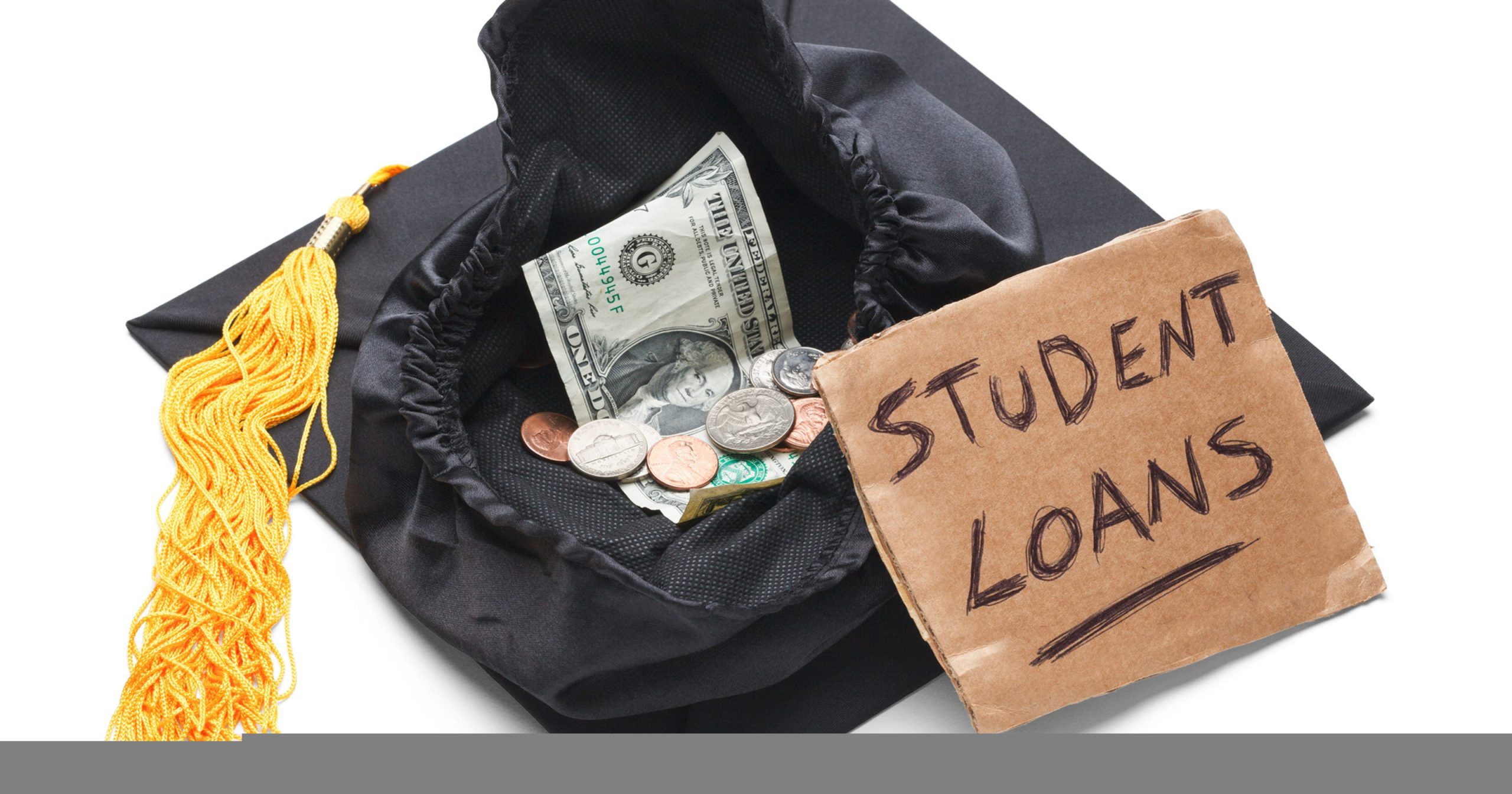Understanding Student Loan Payments
Can You Pay Student Loans With a Credit Card?
Hey there! If you’re a recent graduate trying to navigate the world of student loan payments, you may have come across the question of whether you can use a credit card to pay off your student loans. Well, the short answer is, yes, it’s possible. But before you go swiping away, there are a few things you should consider. Let’s break it down.
Understanding Student Loan Payments
When it comes to paying off your student loans, there are several factors to consider. First and foremost, it’s crucial to understand the terms of your loan and how payments are calculated. Student loans typically have a fixed interest rate, which means that the interest does not change over time. This interest is usually added to the principal amount of the loan, resulting in the total amount that you owe. The monthly payment you make includes both the principal and the interest, with the goal of gradually paying off the loan over a set period of time.
It’s important to keep in mind that student loans are not like other forms of debt. Unlike credit card debt, student loans usually cannot be discharged in bankruptcy and typically have lower interest rates. This means that missing a payment or defaulting on your student loans can have serious consequences, such as damaging your credit score and potentially garnishing your wages. Therefore, it’s crucial to make timely payments and communicate with your loan servicer if you’re facing financial hardship.
There are several options for making payments on your student loans. Many borrowers choose to set up automatic payments to ensure that they never miss a due date. This can also often lead to a small reduction in your interest rate. Others prefer to make manual payments online or by mail, giving them more control over when and how much they pay each month. Whichever method you choose, it’s important to stay organized and keep track of your payments to avoid falling behind.
As you’re making payments on your student loans, you may also want to consider the possibility of paying off your debt more quickly. By making extra payments or increasing the amount you pay each month, you can potentially save money on interest and pay off your loans ahead of schedule. However, it’s important to check with your loan servicer to ensure that any additional payments are applied correctly and reduce your principal balance.
In conclusion, understanding student loan payments is essential for managing your debt effectively. By familiarizing yourself with the terms of your loan and staying on top of your payments, you can make progress towards becoming debt-free and achieving your financial goals. Remember to explore all your options and seek advice from financial professionals if you’re unsure about the best way to manage your student loan debt.
Pros and Cons of Using a Credit Card
When it comes to paying student loans with a credit card, there are certain pros and cons to consider. Let’s take a closer look at the advantages and disadvantages of using a credit card for this purpose.
One of the main advantages of using a credit card to pay student loans is the convenience it offers. With a credit card, you can easily make payments online or over the phone without having to write and mail a check. This can save you time and hassle, especially if you have a busy schedule.
Using a credit card can also help you earn rewards points or cash back on your payments, depending on the rewards program associated with your card. This can help you save money or earn valuable perks while paying off your student loans.
Additionally, using a credit card can provide you with an extra layer of protection. Credit card companies often offer fraud protection and dispute resolution services, which can be useful if you encounter any issues with your student loan payments.
However, there are also some disadvantages to using a credit card to pay student loans. One of the main drawbacks is the potential for high interest rates. If you are unable to pay off your credit card balance in full each month, you could end up accruing significant interest charges, ultimately costing you more money in the long run.
Another downside is the possibility of incurring additional fees. Some student loan servicers may charge a fee for credit card payments, which could negate any rewards or cash back you earn. It’s important to carefully review the terms and conditions of your student loan servicer before deciding to pay with a credit card.
Using a credit card to pay student loans can also impact your credit score. If you carry a high balance on your card or miss payments, it could hurt your credit score and make it more difficult to qualify for loans or credit in the future.
In conclusion, while there are some advantages to using a credit card to pay student loans, there are also potential drawbacks to consider. It’s important to weigh the pros and cons carefully before deciding if this payment method is right for you.
Alternative Payment Options for Student Loans
When it comes to paying off student loans, many people wonder if they can use a credit card to make payments. While this may seem like a convenient option, it is typically not allowed by most student loan servicers. Using a credit card to pay off student loans can result in high fees and interest rates, causing you to end up paying more in the long run. However, there are alternative payment options available that can help you manage your student loan payments without resorting to using a credit card.
One alternative payment option for student loans is setting up automatic payments through your bank account. By setting up automatic payments, you can ensure that your student loan payments are made on time each month without having to worry about manually making a payment. Many student loan servicers offer a discount on the interest rate if you sign up for automatic payments, which can help save you money in the long run.
Another alternative payment option for student loans is enrolling in an income-driven repayment plan. Income-driven repayment plans calculate your monthly student loan payments based on your income and family size, making it more manageable for you to make payments each month. These plans also have forgiveness options after a certain number of years of making payments, which can provide relief if you are struggling to make your student loan payments.
If you are unable to make your student loan payments, another alternative option is to apply for deferment or forbearance. Deferment and forbearance temporarily postpone your student loan payments, giving you some financial relief during difficult times. However, it’s important to note that interest may still accrue during deferment or forbearance, so it’s best to resume making payments as soon as you are able to do so to avoid increasing your overall loan balance.
Lastly, if you have multiple student loans with different interest rates, consider consolidating your loans into one loan with a fixed interest rate. Loan consolidation can make it easier to manage your payments and potentially lower your interest rate, saving you money over the life of the loan. However, it’s important to research and compare loan consolidation options to ensure that it is the right choice for your financial situation.
In conclusion, while paying student loans with a credit card may not be the best option, there are alternative payment options available that can help you manage your student loan payments effectively. From setting up automatic payments to enrolling in income-driven repayment plans, exploring these alternative options can help you stay on track with your student loan payments and achieve financial stability.
Tips for Managing Student Loan Debt
Student loan debt can be a heavy burden for many young adults as they transition into the workforce after graduation. As you navigate the world of student loan repayment, it’s important to have a solid strategy in place to manage your debt effectively. Here are some tips to help you tackle your student loans and stay on track financially:
1. Create a Budget: Start by creating a budget that outlines your monthly income and expenses. Be sure to include your student loan payments in your budget and prioritize making on-time payments to avoid defaulting on your loans. Look for areas where you can cut back on expenses to free up more money for debt repayment.
2. Explore Repayment Options: Research the different repayment options available for student loans, such as income-driven repayment plans, loan consolidation, and loan forgiveness programs. These options can help make your monthly payments more manageable and potentially lower the overall amount you owe.
3. Prioritize High-Interest Loans: If you have multiple student loans, focus on paying off the loans with the highest interest rates first. By tackling these loans first, you can save money on interest over time and pay off your debt more quickly.
4. Use a Credit Card Wisely: While it is technically possible to pay your student loans with a credit card, it is not always the most financially prudent option. Some loan servicers may accept credit card payments, but they often charge a processing fee that can negate any rewards or benefits you may earn from using your credit card. Additionally, using a credit card to pay off student loans can lead to high levels of credit card debt if you are not able to pay off your balance in full each month.
Instead of using a credit card to pay off your student loans, consider using it strategically to earn rewards on everyday expenses and then using those rewards to make extra payments on your loans. This way, you can benefit from credit card rewards without incurring unnecessary debt.
Overall, managing student loan debt requires careful planning and discipline. By creating a budget, exploring repayment options, prioritizing high-interest loans, and using credit cards wisely, you can take control of your debt and work towards a brighter financial future.
Consequences of Defaulting on Student Loans
Defaulting on student loans can have serious consequences that can negatively impact your financial future. Here are some of the consequences you may face if you default on your student loans:
1. Damage to Your Credit Score: When you default on your student loans, your credit score will take a hit. This can make it difficult for you to qualify for credit cards, car loans, mortgages, and other types of loans in the future. A low credit score can also result in higher interest rates on any loans you do qualify for.
2. Collection Activities: Once you default on your student loans, the lender will likely hand your account over to a collection agency. Collection agencies are known for their aggressive tactics when attempting to collect on debts. You may receive frequent phone calls, letters, and even have a portion of your wages garnished to repay the debt.
3. Legal Action: If you continue to ignore your student loan debt, the lender may take legal action against you. This can result in a lawsuit being filed against you, which could lead to a court-ordered judgment against you. This judgment could result in additional penalties and fees added to your already existing debt.
4. Loss of Federal Benefits: Defaulting on federal student loans can have serious consequences, including losing access to federal benefits such as income-driven repayment plans and loan forgiveness programs. Additionally, you may not be eligible for federal financial aid for future education expenses.
5. Social Security Offset: One lesser-known consequence of defaulting on student loans is the possibility of having your Social Security benefits offset. If you are receiving Social Security benefits and have defaulted on your student loans, the government has the authority to garnish a portion of your Social Security benefits to repay the debt. This can significantly impact your monthly income, making it harder to cover basic expenses in retirement.
Overall, defaulting on student loans is a serious matter that can have long-lasting consequences. It is important to explore all options available to you, such as income-driven repayment plans, deferment, or forbearance, to avoid defaulting on your student loans. If you are already in default, it is essential to communicate with your lender or loan servicer to discuss possible solutions to get your loans back on track.







